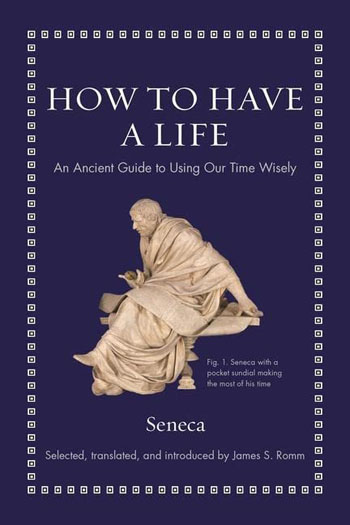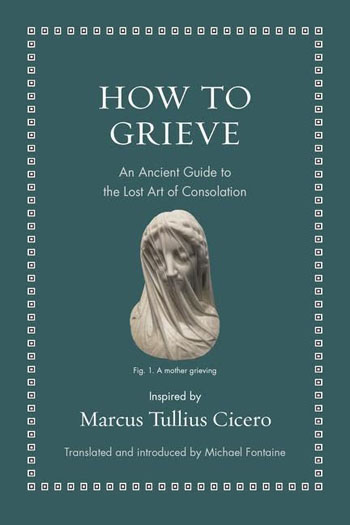|
HOW TO STOP A CONSPIRACY
Sallust trans Josiah Osgood
Conspiracies are nothing new, but we live in an age of upsurge. The
recent US case against Alex Jones is one of many egregious examples
of outlandish flapdoodle being peddled as fact. Osgood mentions
Richard Hofstadter’s characterisation of a “paranoid style” in
American politics, and of course, Trump’s ludicrous claims. In 63
BCE Catiline, who attracted no small degree of support, tried to
overthrow the Roman Republic having failed to win the consulship
twice. It seems, however, his conspiracy existed some time before
his failures. Sallust, born in 86, was a tribune who favoured
democracy (limited though it was by our standards). The corruption
in the State was a vital matter for him and therefore the Catline
Conspiracy an attractive subject. His little book recounts the
history of the events. It would be redundant to rehearse it here.
However, in typical Roman fashion he reflects philosophically on his
subject and his aphoristic observations provide the book with much
of its ballast. Sallust was influenced by Thucydides, the Greek
historian of the Peloponnesian War, who wisely was less interested
in the actions of the gods and more in those of people, especially
the rich and powerful. Thucydides was particularly interested in the
discrepancy between what people seeking power claim to stand for and
what they do (plus ça change). “Those who would carry through odious
deeds” he wrote, hide behind “fair phrases.” Something to remember
at election time.
“When you have exerted your intellect, it prevails; if desire takes hold, desire rules, and the mind does not prevail.” Sallust may not be quite right. Is there an enduring conflict between intellect and desire? What if we desire good and justice? Perhaps what he means is self-indulgence. Clearly his intention is that we should address the world rationally and he recognises that when people have an interest to defend, they will quickly flee from objectivity. Orwell feared the disappearance of objectivity. For a hundred million Americans, it has evaporated. Against all the evidence, they believe Trump won. Sallust’s brief examination of the roots of conspiracy is unfortunately all too pertinent.
HOW TO HAVE A LIFE
Seneca trans James S Room
Princeton
Seneca’s essay was entitled De Brevitate Vitae (On the
Shortness of Life). The updated title is more in keeping with
modern conceptions, but maybe Seneca’s is preferable. Life is short
when viewed even against the backdrop of human history and
pre-history; set against the existence of the earth, of life, of the
universe, it’s a blink. This isn’t Seneca’s point. What he’s getting
at is that we squander our lives and then blame their brevity. What
does the squandering consist in? “Nothing belongs less to the
distracted person then living,” he writes. People are distracted in
myriad ways: ambition, avarice, hedonism.The essence of distraction
is a failure to be aware: “only philosophers are alive.” What he
means by “philosopher” isn’t a professional, but a person who
reflects, who chooses, who knows what he is doing and why. He
argument is that most people don’t do this. They exist. They follow
a course laid down by external forces. They are ruled by heteronomy.
Seneca is arguing for the autonomous individual. “Only those whose
every action was monitored by their own judgement – a faculty never
deceived – turn back willingly towards the past.” How can he claim
judgement is never deceived? He presupposes maturity, education,
reason, fortitude, forbearance; the characteristics of an autonomous
individual. His view of the past and our relation to it is telling:
fortune (the ancients had a great belief in fortune’s whimsical
rule) can’t alter our past. It can ruin the present or the future
but the past is secure. Thus, memory is a healthy faculty. Those who
have lived autonomously, whose judgement has ruled their lives, can
look back on their past in peace and satisfaction. Those who have
lived “distracted” lives, however successful, have no such comfort.
Ours is a culture of distraction. Autonomy is its enemy. People are
required to be dutiful employees and consumers. In Seneca’s terms,
almost everyone in a so-called advanced society is “distracted”. To
choose according to your judgement might upset the markets. Seneca’s
conception of memory is akin to Proust’s who wrote: “Reality takes
shape in the memory alone.” Like Seneca he recognised that the
present is slippery, the future uncertain, but the past a reserve of
certainty. It’s because memory is so defining we must live according
to our own judgement, otherwise what we look back on is an
emptiness.
Seneca is harsh on what he calls “the hollow zeal for learning
meaningless things”. He would have hated the pub quiz. Accumulating
scraps of knowledge, however extensive, is a poor use of
intelligence. It should be employed in thinking: “…the things made
holy by wisdom can’t be harmed.” Today we value being “smart”, which
usually means having some skill you sell for a fortune. Seneca’s
wisdom is disdainful of anything transient.
Time is a burden to the distracted. Leisure itself becomes a kind of
unpleasant task. It’s this notion of time weighing heavy that Seneca
intends when he speaks of the shortness of life. People feel their
life is short, even if they’ve lived to a hundred, when they haven’t
lived autonomously. To live twenty years according to your own
lights is to live longer than to survive to ninety as a slave to
external influences.
Xerses wept at the thought of his troops all being dead in a hundred
years, and then sent them into battle where many of them perished.
What underpins this contradiction is the emptiness of power. The
powerful fear losing it, argues Seneca. It’s a distraction. The
powerful aren’t living. They have surrendered autonomy for
autocracy. The old who can’t give up work have fallen prey to a kind
of addiction. They are at the mercy of a compulsion and want to go
on working when they have lost the capacity.
Seneca was both wealthy and powerful. Was he a hypocrite? Rather he
surpassed in his philosophy what he couldn’t shake off in reality.
He believes what he writes, but circumstances entrapped him. In
that, he’s like the rest of us: who doesn’t want to ditch the
burdensome job and take life as it comes? People buy lottery tickets
in that hope. What Seneca says is fundamentally correct: we waste
our lives. Will we stop? That’s a question that’s been around for
thousands of years.
HOW TO GRIEVE
Cicero trans Michael Fontaine
ISBN 978-0-691-22032-1
Not a direct translation of Cicero but based on his writing. The
original was lost. What has come down to us (Fontaine explains how
in his introduction) is a compilation. This is Cicero’s response to
the loss of his beloved daughter Tullia, who died from complications
in childbirth. He was shattered but determined to pull himself
round, effectively to think his way out of his devastation. The
means, essentially, is to diminish life and the elevate death. Death
is “the best of life” he writes, reasoning that it frees us from all
life’s miseries and uncertainties. The book is made up of variations
on this theme. It’s hard not to conclude that grief turned the
philosopher’s mind. Shakespeare, who also suffered the appalling
experience of losing a child took a different view: “,,,the weariest
and most
worldly life/ that age, ache, penury and imprisonment can lay
on nature/ is a paradise to what we fear of death.” Perhaps he gets
the better of the argument. Cicero’s position depends on a belief in
the after-life and a confidence that it will be happy. What’s wrong
with the view of the after-life, of course, is that happiness is
impossible without the possibility of unhappiness, peace without the
possibility of conflict, justice without the possibility of
injustice. If there were nothing but justice, we wouldn’t recognise
it as such, just as if everything were white we wouldn’t know it. We
have the capacity for happiness, but have to make the right choices.
We can establish justice, but it takes courage, insight and effort.
Cicero accepts the delusion of a one-dimensional reality. Hardly
surprising that he should find comfort in an unrealistic view and it
may be that it saved him from complete breakdown. Maybe such
illusions have saved many people. Interestingly he writes: “All
excessive grief is disgraceful and unnatural because grieving
excessively and unreasonably is a conscious choice.” He may
be right that if grief is excessive it contains an inauthentic
element, but there can be little doubt that grieving is a natural
process which permits us, at length, to regain our equilibrium.
Perhaps Cicero has exaggerated. His own position looks like a
conscious choice. He deliberately frames his daughter’s death as an
inevitability, and who can rail against life’s inevitabilities? He
cites Anaxagoras, who on the death of his son, remarked: “I knew he
was mortal.” The book is a fascinating exploration of the way a
powerful mind deals with one of the most distressing events.
Accepting Cicero’s judgement that death is the best of life is very
difficult, but following the process he employs to console himself
is compelling.
|


